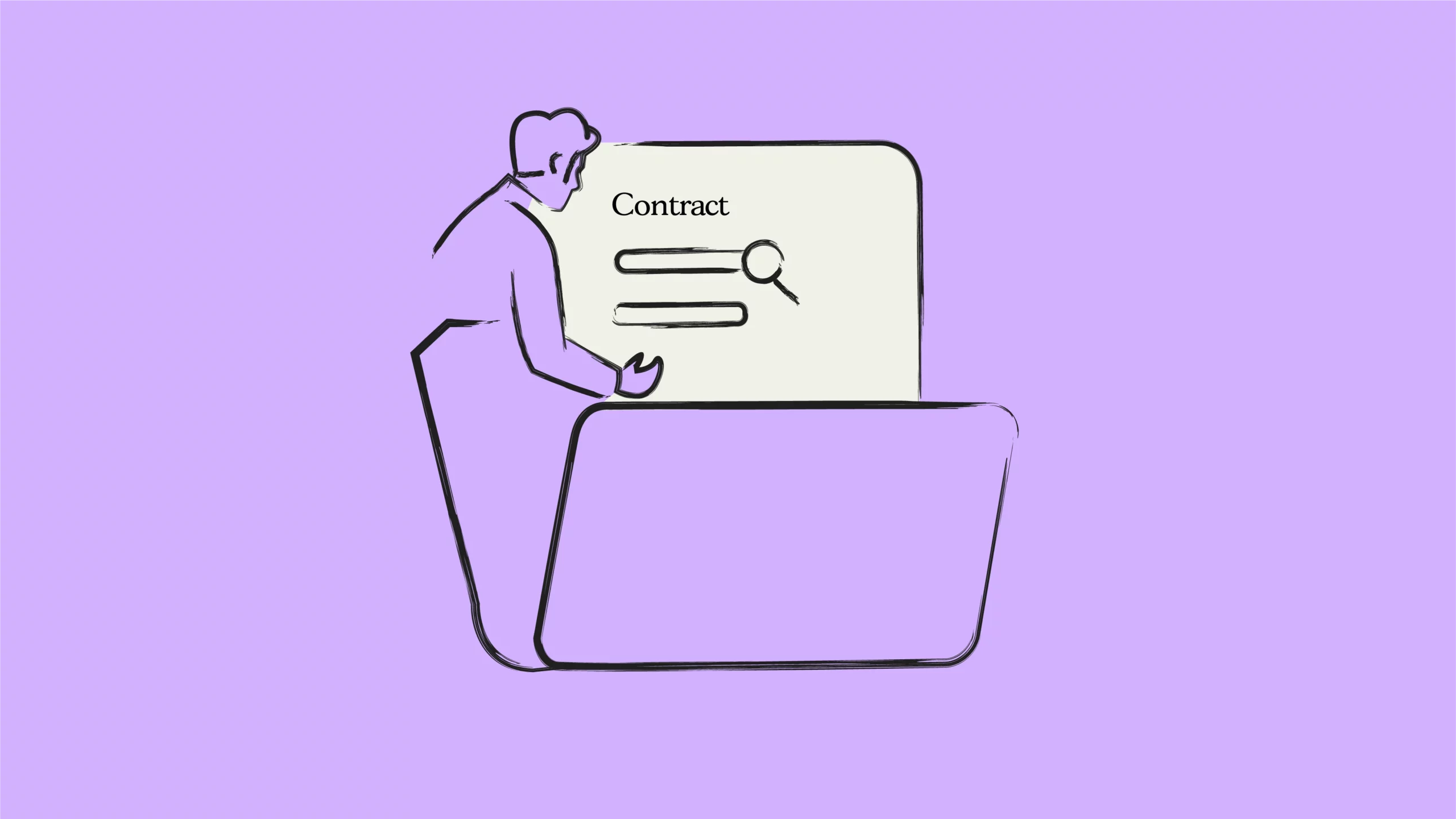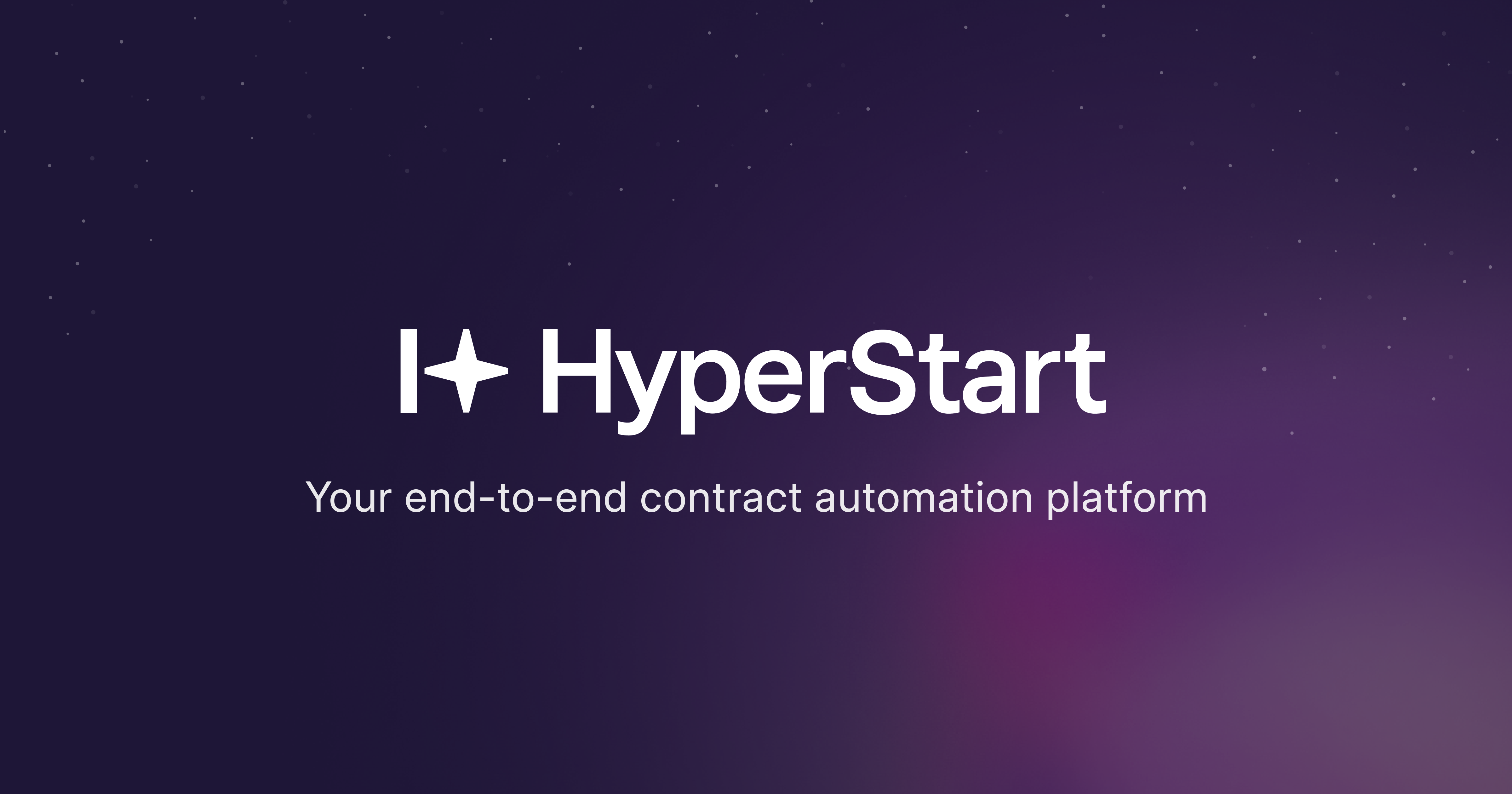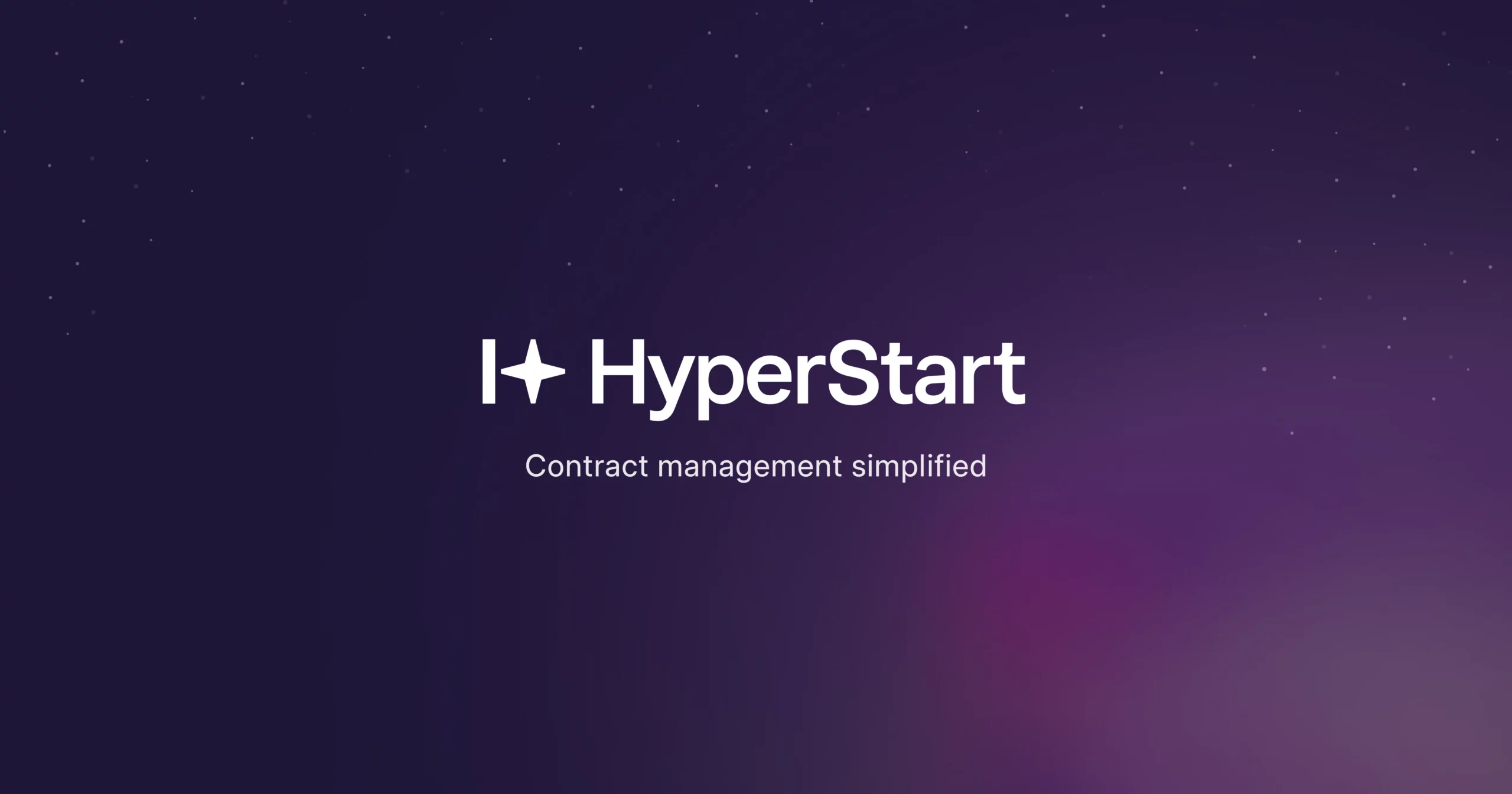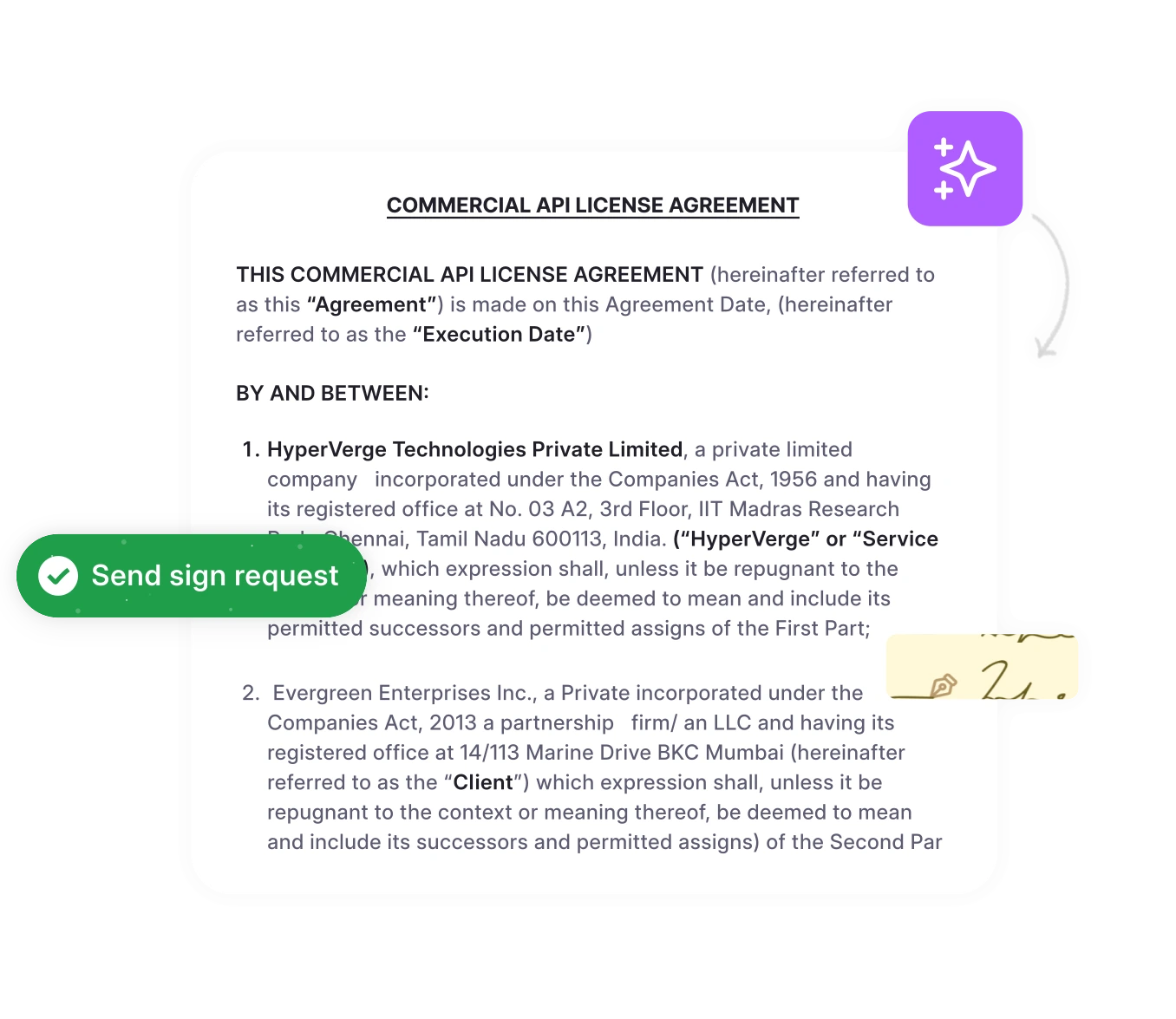Using spreadsheets, shared drives, and email chains to manage contracts could be more efficient and updated. These methods create confusion, delays, and missed opportunities. Disorganization grows without a centralized contract management system, increasing risks and complicating operations.
This blog explores how efficient contract data management can transform how you handle contracts. We’ll discuss how it streamlines processes, enhances visibility, and helps manage risks and compliance.
What is contract data management?
Contract data management is the process of storing, tracking, and analyzing contract data across the organization. This includes pre-execution and post-execution contract lifecycle stages.
Effective contract data management starts with smart organization and ensures your business can quickly find, understand, and use data effectively. Done right, it streamlines operations, reduces risks, and supports smarter, data-driven decisions.
For instance, tracking contract milestones allows businesses to avoid missed renewals and overlooked obligations. Well-managed data promotes smoother collaboration between departments, leads to better negotiation outcomes, and simplifies reporting. Conversely, poor contract data management can lead to operational bottlenecks, legal issues, and missed revenue.
Why does tracking of contract data matter?
Tracking contract data is essential for making informed, strategic decisions. With accurate, accessible contract data, organizations can:
Renegotiate terms
Ensure compliance
Prevent costly oversights like a missed contract renewal and obligation
Organized and reliable contract data demonstrates a company’s commitment to fulfilling obligations, resolving issues quickly, and maintaining strong, long-term relationships.
Types of data to prioritize in contract management
Managing contract data requires focusing on crucial information that underpins operational success and risk management.
1. Key dates
Automating tracking of renewal deadlines, expiration dates, and milestones is essential. Staying on top of these dates helps prevent costly issues like missed renewals or delayed contract execution, which could impact operations or relationships.
2. Obligations
Keeping a close eye on mutual obligations without sweat is crucial. Obligation fulfillment, whether they’re financial commitments, delivery deadlines, or service levels, prevents contract breaches and strengthens business relationships. Missing an obligation could lead to penalties and affect long-term business partnerships.
3. Risk clauses
Identifying risk clauses, like termination rights, indemnity clauses, or penalties for non-compliance, is vital for contract risk management. These clauses often define the terms under which you can exit an agreement or mitigate liability. Understanding them allows you to anticipate and manage potential risks before they escalate.
4. Financial terms
<p>Tracking financial elements, including payment schedules, pricing adjustments, and penalties, ensures that cash flow remains consistent. This data allows businesses to avoid financial surprises and disputes. Ultimately, it helps maintain long-term financial stability. You can leverage tools like a contract management dashboard to visualize and track these financial aspects effectively.
Contract Chaos Holding You Back?
See how HyperStart CLM streamlines contract data management, reduces risks and unlocks growth.
How does automated contract data tracking make a difference?
Efficiently managing contract data extends beyond operational necessity. It builds a solid foundation for streamlined processes and strategic decision-making.
1. Cutting down on administrative work
Tracking contract data takes the grind out of contract management. With automated systems, teams no longer need to spend hours on tedious tasks like manual data entry or double-checking records. Instead, they get instant access to important data, making it easier to stay organized and focus on what matters, driving the business forward.
2. Eliminating errors
Manual processes are notorious for mistakes, leading to missed deadlines, financial losses, or relational misunderstandings. Efficient tracking systems fix this by standardizing data and automating workflows, ensuring accuracy at every step. With reliable data, stakeholders trust the information they’re using, reducing costly mix-ups and boosting confidence.
3. Building trust with stakeholders
When data is accurate and easy to access, everyone benefits. Clients, vendors, and internal teams are confident that they’re working with trustworthy information. Clear, accurate data strengthens relationships, minimizes confusion, and keeps everyone on the same page, making communication smoother and more effective.
4. Creating transparency across teams
Efficient data tracking brings departments together. Legal, finance, sales, and procurement teams all gain visibility into contracts, from key dates to specific obligations. This transparency encourages collaboration, ensures everyone is aligned, and makes it easier to address challenges or capitalize on new opportunities.
5. Faster decision-making
Teams are empowered to make smarter, faster decisions with full contract visibility. Whether negotiating terms, managing compliance risks, or evaluating past deals, having organized data ensures everyone is on the same page and ready to take action. This leads to more impactful decisions that align with business goals and drive real results.
How to overcome contract data challenges
Fortunately, there are effective ways to overcome these challenges. Here’s how businesses can address the issues of siloed data and manual tracking:
1. Implement integrated systems
Bringing everything together in one system is essential to solving contract data challenges. An integrated platform ensures all contract data is stored in one place, allowing teams to access the most up-to-date business data. This eliminates the confusion of working with multiple systems and reduces the risk of errors. Everyone, from legal to finance, can access the same data, which helps things run smoothly.
2. Standardize data practices
Setting clear rules for entering and organizing contract data can make a big difference. Everyone can follow the same format with consistent file names. Contract data and language are standardized with legal-approved parameters. This reduces legal involvement, makes data more reliable, and helps different teams work better with legal.
3. Foster collaboration
Effective contract data management isn’t just about systems but also communication. Encouraging regular check-ins between teams like legal, finance, and procurement ensures everyone is on the same page. When teams collaborate, they catch mistakes early so nothing slips through the cracks.
4. Leverage intelligent tools
Modern contract management software is built to make life easier. With features like automation and AI, tasks that used to take up a lot of time, like data entry or tracking contract deadlines, can be done automatically. AI can also help identify trends or potential issues, giving you insights that help you make smarter decisions. These tools save time on chore work so you can focus on core work.
Schedule quarterly or biannual cross-departmental meetings to address contract management challenges. These sessions encourage collaboration, identify bottlenecks, and ensure all teams stay aligned on key obligations, deadlines, and compliance requirements.
3 core features to look for in a contract data management system
When selecting a contract data management system, it’s crucial to focus on features that streamline processes, reduce manual work, and provide actionable insights. Here are the essential features to look for:
1. AI capabilities for contract data management
An advanced contract data management system should automate routine tasks, minimizing the need for manual intervention. This includes automating data entry, contract creation, and key milestone reminders.
AI-powered insights help businesses gain deeper visibility into contract data, such as identifying risks, trends, and compliance gaps.
AI-driven contract analysis can review large volumes of contracts, quickly identifying clauses, terms, and potential issues that require attention.
The result: Reduced human error, faster contract processing, and smarter, data-driven decisions. Read more on AI contract management here.
2. Advanced analytics for risk and trend management
An effective system should provide advanced analytics that allows businesses to uncover hidden patterns, forecast potential risks, and optimize contract terms for better outcomes.
Trend analysis can help identify recurring issues, such as contract breaches or costly renegotiations.
Risk forecasting uses historical contract data to predict potential pitfalls, enabling proactive decision-making to mitigate risks before they become problems.
The result: Improved contract performance, reduced risk exposure, and optimized terms based on data insights.
3. Centralized dashboards for better data visibility
A centralized dashboard serves as a one-stop hub for all contract data. It provides a holistic view of the entire contract lifecycle, from initiation to renewal.
Dashboards allow users to track key metrics, such as contract status, milestones, and compliance levels.
This feature simplifies contract management reporting, helping teams automate obligation, risk, and liability tracking.
The result: Better decision-making, zero missed obligations.
Struggling with Siloed Data and Manual Processes?
Centralize your contracts, automate tasks, and gain control. Only with HyperStart CLM.
3 benefits of contract management software with integrated data management
A contract management software that integrates data management capabilities offers various strategic benefits. Here’s how it can positively impact your business:
1. Enhanced compliance and reduced risk
Integrated contract data management systems offer greater transparency, making monitoring contractual obligations and compliance requirements easier.
Post-execution: With real-time visibility, teams can immediately spot compliance issues, upcoming renewal deadlines, or potential breaches.
Pre-execution: Audit trails and automated alerts to close deals faster. Streamlined workflows with role-based access for better internal compliance.
2. Improved negotiation power
Historical contract data and performance metrics strengthen your organization’s negotiating position.
Post-execution: Data-driven renegotiations are strengthened with contract trend history on terms, pricing structures, and performance outcomes.
This can give you better bargaining power, more favorable contract terms, and optimized contract performance over time.
3. Automation of repetitive tasks
One of the most significant advantages of automated and integrated contract management systems is streamlining repetitive tasks.
Pre-execution: Routine activities in the contract lifecycle management like manual data entry, extraction, contract generation, approval follow-ups, redlining, and review, free up valuable resources.
This reduces administrative burden and allows legal and sales teams to focus on more strategic work, negotiations, and closures.
Learn more about the benefits of contract management.
How HyperStart CLM improves contract data management
HyperStart CLM is designed to address the complexities of contract data management, ensuring organizations can streamline their processes and gain more control over their contractual obligations.
With its suite of features and automation tools, HyperStart CLM provides a robust solution for businesses looking to optimize tracking and management of contract data throughout the contract management processes.
| CLM Stage | Benefit | Highlight |
| Contract creation | Automates contract data collection with workflow templates. | 60% reduction in contract creation time |
| Contract review | AI-powered redlining improves review accuracy and efficiency | 6+ hours saved per contract review |
| Contract obligation tracking | Real-time insights, obligation tracking, and reporting | Never miss an obligation again |
| Contract lifecycle tracking | InFlight dashboard helps you watch ongoing and optimize pre-signature processes | 80% faster contract TAT |
Stop wasting time and resources on manual contract management. HyperStart CLM empowers your team to work smarter, not harder. Book a Demo and discover how to automate tasks, gain valuable insights, and drive efficiency across your organization.












